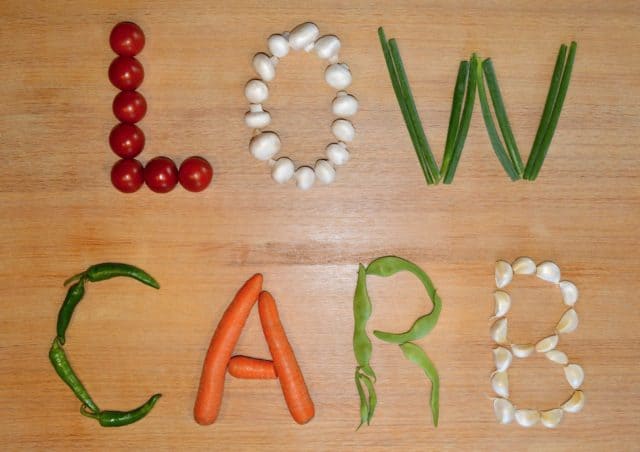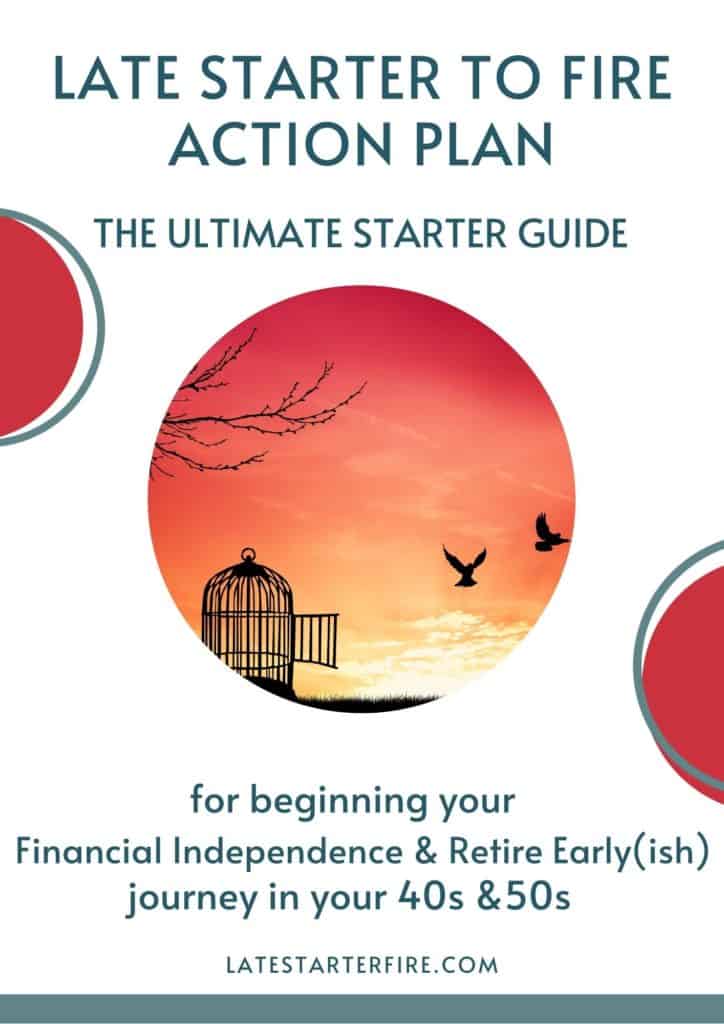Welcome to the Late Starter to FI series!
I am a Late Starter – I did not discover FIRE (Financial Independence Retire Early) concept until I was 47. This was way later, I thought than others who seem to have it all together in their 20s and 30s.
Since I started to write about my own journey, I have discovered there are many more Late Starters like me, yay! It is such a relief knowing I am not alone.
I want to share our stories, our unique perspectives and show that it is absolutely not too late for us.
So in this series, I particularly highlight those of us who start our FI journeys in our 40s, 50s and 60s. And explore questions such as ‘where do we start’, ‘can we still retire early(ish)’, ‘what are the specific challenges for us late starters’. We look at our past, not to castigate ourselves but so that you can learn from us.
Please join in the conversation in the comments below. I encourage you to share your story if you fit the profile of a late starter. You absolutely don’t have to be a blogger or podcaster to share your story.
Please email me at info@latestarterfire.com or connect with me on Twitter or Facebook or Instagram.
And if you’ve missed any of the previous stories, you can catch up here – Late Starter to FI series

Feeling Overwhelmed?
Use this FREE Checklist to start your journey to Financial Independence
I am always fascinated by how we first heard about FIRE. Were we bored at work and searched “how to retire”? Or had friends or colleagues or partners who told us about it?
Today’s late starter, Fire at 55 came upon FIRE in a most unusual way – by searching for low carb diet on the internet! He writes about his journey at FIRE at 55 (Edit: his blog is no longer available)
This is his story …
A little about me
I live in the UK and I turned 50 this year.
I have an office job that taps into the only talent I have and that I appear to have been born with. I’ve had a very squiggly career path so I consider myself lucky that I’m earning a living doing what I’m doing. It’s what I wanted to do since I was 13 but have only been doing it for the past 20 years.
Like many people though, I don’t enjoy working in an office. I’m more an outdoorsy type. I love hill walking, travelling and I’m a culture vulture.
I’m gay and I’ve been with my partner for nearly 24 years. Although I’ve had moments of broodiness over the years we’ve never seriously considered ourselves suitable as adopters. My partner has never wanted kids and I’m over the yearnings now.
Not having children has given me an advantage in regards to FIREing. There used to be a term called ‘pink pound’ back in the ‘00s, I think, which referred to the disposable income of, usually, gay men. I’ve not heard that phrase used for years but my rinky-dink pink pounds are now being pumped into my future fund.
I’ve only just started blogging about my journey to FIRE. So thank you to LateStarterFire for asking me to contribute to this series of late FIRE starter stories.
Lightbulb moment
My own FIRE voyage set sail back in January 2016 from the port of the one and only, Mr Money Mustache. I had been searching online about low carb diets for a week or so and a post came up from MMM’s blog called ‘The Amazing Waist-Slimming, Wallet-Fattening Nutrient’.
I crashed into FIRE and it was a revelation. I had never considered that you could retire early by anything other than ill-health, wealthy parents, a huge inheritance or a big win. So in tandem with the start of my low carb adventure I began my FIRE odyssey.
At first all I found were US sites and I began to think that I might be the very first person in Blighty to find out about the secret of FIRE. To double-check I searched “FIRE UK”. I definitely wasn’t the first. The numerous British blogs showed me a more realistic and relatable version of FIRE that I could achieve.
Before FIRE
I had been pretty frugal for around 10 to 15 years before I found FIRE so I was in a pretty good place financially already.
I can’t remember exactly when but maybe in the early to mid ‘00s I came across a website, MoneySavingExpert, ran by a chap called Martin Lewis. How or why I found it is lost in time but I did the site’s ‘Money Makeover’ which reduced my spending dramatically.
Much of the surplus cash went on some great holidays with my partner but also on overpaying my mortgage. When I sold my house in 2009 I became mortgage free. It was in 2009 that my partner and I bought a house together.
With both of us now mortgage free, we spent much of our surplus cash on travelling.
First steps on the path to FI
The very first step I took on the path to FIRE was to binge on all the FIRE blogs and vlogs I could find, reading the amazing stories, trying to soak up the jargon, the personal insights and the financial advice.
I then had a look at my stocks and shares ISA and diversified my investments into a couple of stock market tracker funds – FTSE 100 and S&P 500.
I started slowly increasing my direct debit payment into my S&S ISA from £50 a month to £500. I also started increasing my pension contributions. From the standard 5%, it’s now at 40% and I’ve reduced my monthly direct debit into my S&S ISA to £300 – a deliberate choice to weight my savings towards my pension due to the tax relief I receive from the government.
Then I checked in on two forgotten pensions. One of which was a revelation and I’ll come back to this in a bit.
At the time I discovered FIRE I had about £10k in a cash ISA. I’d read on a few standard financial websites that you should have no unsecured debt and 10 grand in cash before you invest in the stock market.
I labelled these savings ‘emergency fund’ on reading about FIRE. I did read many conflicting views on FIRE blogs regarding the wisdom of having cash funds as opposed to having all your savings in stocks and shares.
My emergency fund crept over £12k a few years ago and given the hideous interest rates in the UK I began to think I should chuck it all into my S&S ISA. In the end (are you sitting down?), I spent most of it on a couple amazing holidays with my partner.
My emergency fund is now £3k and I’m happy with that. It represents around three months of expenditure for me. I’m figuring if I’m out of work for more than three months, I can start selling portions of my investments to keep me going.
Due to the increasingly poor interest rates, I’m prepared to risk the majority of my future fund being in the stock market. Being mortgage-free influences this decision too. I no longer count my emergency fund as being a part of my future fund. It’s for emergencies, not for FIRE.
Are you READY to TAKE ACTION today?
🔥 practical tips & strategies
🔥 step by step guide
🔥 cut the overwhelm, second guessing & paralysis by analysis
Financial History
My financial history is pretty average I think. I’ve not made too many terrible decisions regarding money. I’ve never been a gambler or risk taker and I’ve played it safe when taking out loans.
While I’ve taken out many loans over the years I’ve always had the mindset that they should be paid off ASAP. I’ve never defaulted on a loan and I’ve instinctively been careful to take on debt that I felt I could afford.
Another, instinctive, behaviour I’ve always appeared to have had is that the bills get paid first, then food and then fun. I honestly can’t remember if I learned this or it came naturally to me. But it’s been a good foundation for my current financial security.
Money Mistakes
I have made a few mistakes though.
The worst money related decision I made was blowing my £100 of Post Office savings on a Star Wars toy when I was 15.
My folks could never afford these kinds of gifts while I was growing up and it appeared I needed to heal a wound. My parents never found out. I smuggled the Scout Walker into my bedroom and was blissed out for a few weeks and then it was dead to me and I felt stupid.
I think this one misstep made me more cautious about money management as I grew up. I’ve made a few more of these impulse buys over the years but not many.
While taking driving lessons when I was 17, I took out a car loan for £800. I had my heart set on a bright yellow Mk 1 Ford Escort. I failed my test and spent the money on a holiday. I did pay off the loan in full and on time.
Best Financial Decision
The best financial decision I ever made wasn’t really a decision at all. It was just something I did because everyone else seemed to be doing it. To be honest I don’t remember the exact circumstances.
In 1987 I had a job in a factory and the employees were persuaded to opt out of SERPs (a UK state pension scheme) and join a company pension. Sheep-like, I followed the herd.
When I left this job to go back into full-time education in the early ‘90s, my pension was worth approximately £2,500. When I checked it in the early ‘00s it was around £5,500 – fair enough.
On discovering FIRE roughly 14 years later, I sent off for a transfer value. I was dumbfounded when it arrived. How had it got to £70k!? It was as if I had won the lottery.
It’s now worth £106k. Over 100 grand in around 20 years. Time in the market? The magic of compounding? I don’t know, but this one pension has greatly increased my chances of FIREing at 55.
Earlier Rocky Times
My experience of returning to full-time education was rocky.
While I was a good technician I wasn’t such a great academic. I struggled on for a few years but suffered an almighty crash in my confidence and what I now know as ‘imposter syndrome’ enveloped me. I dropped out and hid away wondering what to do next.
While I was a student I had summer jobs and did evening work so managed to avoid serious debt other than my student loan and an eventual £600 overdraft.
However I soon ran out of money and started to fall behind on my rent. I was fortunate to have had a very kind landlord who was prepared to wait until I was able to pay up. I sold numerous possessions and was able to pay for a month’s rent so I had somewhere to stay. But I had run out of money for food.
I hadn’t told any of my family that I’d dropped out of University and I didn’t want to approach them for financial help.
I was living in a multiple occupancy house at the time and I was the only tenant in it. In desperation I turned the place upside down looking for coins. This treasure hunt resulted in 27 pence.
At that time British supermarkets were involved in what was called the ‘baked beans war’. I was able to buy a loaf of cheap white bread for around 12p and three tins of beans for 2p each from a budget supermarket.
I eventually dragged myself out of my hole and to an employment agency and found work as a temp in a warehouse. Within a year I was taken on as a permanent employee which included being enrolled into their defined benefits pension. With night-shift allowances and the plentiful overtime, I earned the most I ever had in my working life – in one year I took home over £40k.
Meeting My Partner
I had met my partner around the same time I started the warehouse job. I realised I was gay when I was around 18 but had struggled to come to terms with my sexuality. But I finally relented and came out to myself.
Although not really my cup of tea I went out on the local gay scene and, after a few adventures, bumped into the guy who I’m still with 24 years later.
He pretty much saved me from myself and had a positive influence on my financial behaviour and my career. I was renting a house at the time and he persuaded me to think about getting onto the property ladder.

Investing in Property
I bought my first house in 1999 for £24,995.
I deliberately looked for something priced well under what I could afford at the time. A sensible decision, which in hindsight, was a bit too sensible.
Shouldda, wouldda, couldda – but I nearly bought a house for £33,995 – way over my £30k max. The way things turned out – I shouldda.
But at the time I was pessimistic about my job security and didn’t want to experience repossession, homelessness and a Byronic existence as a rent boy.
Everything turned out fine though and I sold the house in 2009 for £89,999 and was mortgage free.
My First Foray into Investing in the Stock Market
In 2003 I took voluntary redundancy from the warehouse job that had rescued me. I walked away with seven grand.
I stuck a couple of grand into my savings and the rest went towards refreshing my education with adult learning classes and paying the bills. I did voluntary work and took time out to look for jobs in the career I’d always wanted. I suppose this was a little taster of early retirement. To the other grand I waved goodbye for it to seek its fortune.
With this £1,000 I decided to dip a toe into the big bad stock market.
To me the stock market was for bankers, yuppies, Richard Branson and loud Americans in films like ’Trading Places’. I put aside these prejudices and merrily skipped to a local Independent Financial Advisor. I often used to walk past their offices so had always known about them. They shooed me away with “It might seem like a lot of money to you…” ringing in my ears.
So I went online and found ‘Bestinvest’, a funds supermarket site. I searched the choices and had a think about sector, global spread and my attitude to risk.
Medicine. People will always need medication. I can’t actually remember what my attitude to risk was back then, I probably chose ‘medium’, but I stuck my pin into the Framlington Health Fund and away went my grand to swim with the sharks in a stocks and shares ISA.
It took 10 years for that grand to become a big bouncing £3k. It spent half that time wavering around the thousand pound mark until it started to take off.
To be honest, I was a bit disappointed but maybe that highlights my lack of knowledge about how stock markets work. I also didn’t really appreciate that no cash savings account in the UK would’ve matched that return during that same period.
I broke all the rules. I didn’t have a job. I had savings, maybe a few grand in a cash ISA, but certainly not the recommended 10k. I even had a loan going on a three piece suit I’d bought from DFS during one of their very rare sales (a joke there for UK readers) as well as a mortgage and a student loan. But it all turned out ok. Later in 2003 I got a job doing what I’d always wanted to do and I’m still doing it at the same place now.
Early Retirement
When I embarked on my journey to FIRE, I didn’t really know at what age I would choose to retire. I knew it would be no sooner than 55 due the dependence on my private pensions.
It felt wildly optimistic to even consider that I could become financially independent, and then retire of all things, within 10 to 15 years.
Specific challenges or advantages of starting late
It’s clearly a big challenge to start a journey to FIRE in your mid-forties or later. Especially if you’re starting from zero or even with significant debt.
There does seem to be a disconnect between what the FIRE community thinks is possible and what conventional financial advice suggests is realistic.
The key in my mind is the fundamental decision to be frugal, to be a very light consumer, to be a minimalist and to monitor your expenditure to see where you can cut back.
I started reducing my spending in the ‘00s and my discovery of FIRE supercharged this to the extent that I can now live on between 30% to 40% of my net annual income really rather comfortably.
I just rarely buy ‘stuff’ anymore – and I really don’t miss ’stuff’. I’ve also made significant changes to where I buy stuff from when I do need it – charity or secondhand shops and grocery shopping at budget supermarkets. I mend and make do and do as much DIY as possible.
I‘ve been officially adding 63 per cent of my net annual income to my future fund since July 2020 but I’ve usually got a couple of hundred quid left in my current account before each payday.
I can’t remember the last time I used my overdraft but I would now consider it a huge personal failure if I ever did so again.
Then there are ‘side hustles’ to consider. I immediately loved this phrase on seeing it in the first FIRE blogs I came across. It sounds so cool and just a little bit shady.
I needed to think about what my ‘side hustle’ could be. My job and skill set naturally lend themselves to freelance work but it doesn’t appeal to me to keep doing what I do during the day, in the evening and then into the wee hours. I do do the odd freelance job now and then but I say “no” far more than I say “yes”.
I’m fascinated that so many UK FIREists indulge in something called ‘matched betting’. It surprised me at first. ‘Betting’? But isn’t that gambling? Apparently not. I’ve not taken the time to learn about it as it doesn’t appeal to me at all. I’ve no interest in sports and it sounds very time consuming and slightly stress-inducing.
Another option is to monetise a hobby – selling my work online and at fairs. I’ve still not decided on what my side hustle should be. It occupies my mind a great deal. Whatever it is, I’d rather it not involve me sitting in front of a computer. But instead of trying to earn more, I can always aim to spend less.

Low Carb to FIRE
I mentioned at the start, I discovered FIRE via my searching for information about low carb eating.
On the 4th of January 2016, the day I started eating low carb, I was 16 and half stone (231lbs / 105kg) – I’m 5’ 10” (178cm) tall by the way. By the 1st of November 2016, I was 11 stone (154lbs / 70kg).
In 11 months I’d lost five and a half stone (77lbs / 35kg). I did this by eliminating high carb foods from my diet and increasing the amount of foods high in fat and protein. I didn’t do any extra exercise. I just continued hill walking almost every Saturday as I had been doing for years.
The relevance of a high fat low carb diet to FIRE is not to be overlooked. Before the first UK lockdown in March, my car was ferrying around five and half stone less of me – the fuel savings were noticeable.
My dental check-ups dropped from every six months to yearly. During a check up in early 2017 my dentist casually remarked, “Not eating much sugar these days, are you?”
We buy a lot less food because I now eat just once a day. Every now and then I can go two or even three days without feeling the need to eat.
This has also had an impact on our utility bills which are noticeably lower due to cooking and washing-up less frequently.
There were a few temporary increases in expenditure in that first 11 months of my high fat low carb lifestyle. I had to buy a whole new set of clothes – twice! I mitigated this expense by continuing to buy as much as I could from charity shops.
The other short-term expense is that foods high in protein and fat are generally more expensive than those high in carbs. Until my eating habits naturally shifted from three meals a day to two, and eventually one, our food bill increased. Almond flour can be expensive.
If, like me, your strategy to achieve FIRE is to spend less rather than to earn more, then take a look into low carb eating – there’s plenty of information about it online. The benefits aren’t just financial – there is a lot of medical evidence mounting that it could be valuable to one’s health. If you have to pay for your health care you could save money. Money you could add to your future fund.
My current situation
I’m now in countdown mode. The last five years went by in a flash and the next five will be super swift too.
In July 2015 my stocks and shares ISA was worth £3,277.17. On 14th of November 2020 it’s £34,232.95. Will it get another zero at the end by 2025? Nope. But my aim is to get it over £100k by my 55th birthday.
My current pension should be well over £100k by then and with my magical first pension I should be able to skinny FIRE with an annual income of around £12,000 or more.
Looking back I’m not sure I’d do much different – except throwing away 100 quid on a used toy. I also wish I’d stuck it out at University too despite now having the career I was studying for.
One of the many things I‘ve learned from the financial blogs is that an alternative to overpaying your mortgage is to pay more into your investments and/or pension. I may still have had a small mortgage now but could I have FIREd at 50?
But back to the here and now and the curve ball that’s Covid.
It’s obviously had an effect and could be a real setback to my goal to FIRE at 55. I’m not entirely sure what to do really. Save and invest more?
I’ve been working from home since March so my commute has vanished enabling me to increase my savings. The lockdowns have also further reduced my outgoings.
There was a great post on MMM’s blog advising staying calm and keeping things in perspective. So that’s what I’m doing.
My investment style is quite passive and I’m only invested in funds and not individual companies. I’ve not sold or moved anything. I’m conscious my money is buying stock more cheaply at the moment so when the stock markets begin to rise again, could I see my investments rising more quickly?
I hope this long, potted history of my financial adventures demonstrates that you don’t have to be a high earner to have a chance of achieving FIRE – my current salary is just below the UK national average.
‘Early Retirement Extreme’ (ERE) may not be possible but achieving financial independence, and then the option to retire, years before your standard retirement date is within the reach of most working people. The strategy I’ve chosen is to spend less and save more. I’m frugal and I enjoy being frugal – “Afford anything, not everything”.
What's next?
I’m around two thirds of the way to my FIRE target and I feel confident that I’ll achieve it.
That first pension I joined 33 years ago has essentially leap-frogged me to within touching distance of my goal.
Please encourage any young people you know to pay into a private pension and to not resent doing it. It doesn’t have to be a huge amount either, so fun can still be had. £2,500 to £106,000 in 28 years. I‘m now thanking my sheep-like 17 year old self every day.
Back to Latestarterfire
What an amazing story!
Thank you for sharing your journey with us – from finding 27 pence to later finding £70k in a private pension 🙂 It is incredible that time in the market and compound interest can grow £2500 to £106k in 28 years, without investing an additional penny along the way.
And I love how you discovered FIRE – via researching low carb diet – Mr Money Mustache has lots of tentacles out, haha.
Thanks to your frugality and low carb lifestyle, you are well on your way to FIREing at 55! I look forward to following your journey.





